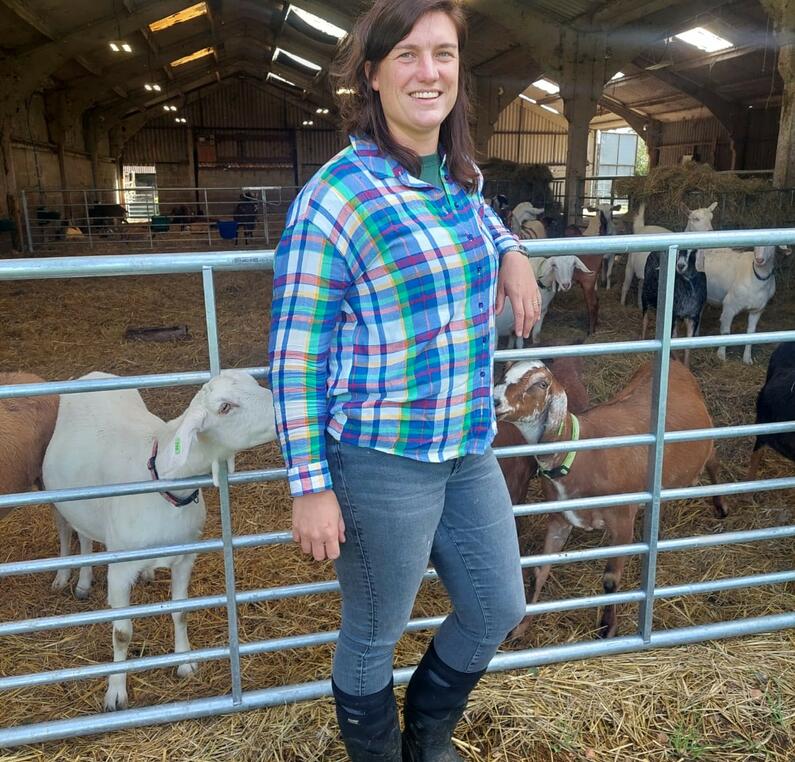
Rachel Yarrow
Farming came as a complete career change for me. I had been working as a secondary school English teacher for ten years when, in 2016, my husband and I acquired our first two dairy goats, aiming to grow a herd big enough to supply our newly established artisan cheese business. Since then, building our herd and business has dealt us a huge variety of challenges and we've been on a steep learning curve, but I have fallen in love with dairy goats (just as well as we now have over 200!), and our cheese has gone from strength to strength, winning national and international awards. In 2020, I embarked on a Masters in Agriculture at Aberystwyth University to enhance my knowledge and understanding of ruminant farming. I can't wait to build on this through my Nuffield project and the very generous sponsorship of the Central Region Farmers' Trust. We farm as tenants of the environmental charity Earth Trust, in Oxfordshire, where I grew up.
The dream British Cheese Goat: could a pasture based dairy goat system ever work at scale in the UK?
Central Region Farmers Trust

Study Overview
UK artisan cheesemakers produce excellent goats' cheeses, of a standard to rival the French, and the popularity and acceptability of goats' cheese is growing amongst UK consumers. However the breeds and farming systems used to produce goats milk in this country are not necessarily that well-aligned with the requirements of artisan cheesemakers. One issue is the lack of an accepted, commercially viable model in the UK whereby dairy goats have regular access to outdoor grazing, which UK consumers and retailers consistently say they expect to see. Elsewhere in Europe though, where there is a much longer tradition of consuming goats' cheese, a range of farming systems and breeds have evolved with the specific aim of producing milk to supply cheesemakers, including those where goats are grazed. My study aims to consider this: is it plausible to imagine developing our own British Cheese Goat, selected for high milk solids and reliable milk yield, but achieved on a predominantly grazed-grass diet, and with the hardiness and parasite resistance needed for an outdoor existence in the UK climate?